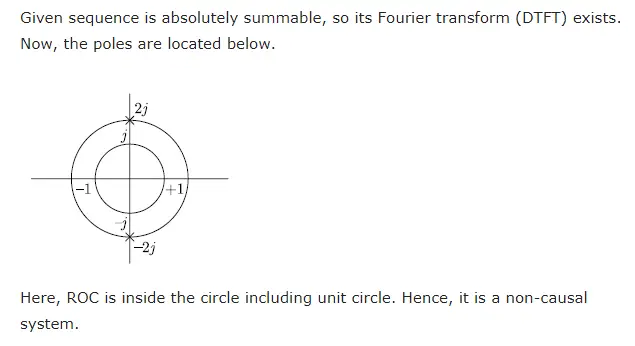Q. 29 Suppose x[n] is an absolutely summable discrete-time signal. Its z-transform is a rational function with two poles and two zeroes. The poles are at . Which one of the following statements is TRUE for the signal x[n]?
(A) It is a finite duration signal
(B) It is a causal signal
(C) It is a non-causal signal
(D) It is a periodic signal
Answer: (C)
Explanation:













